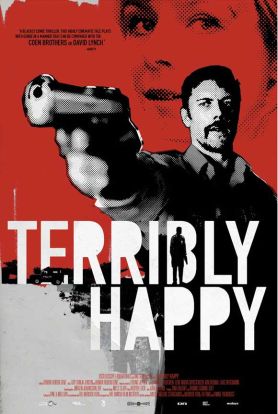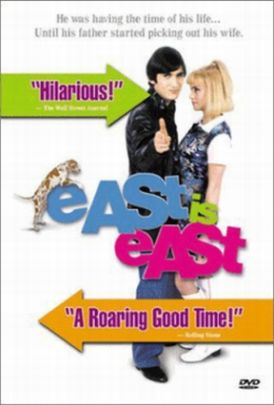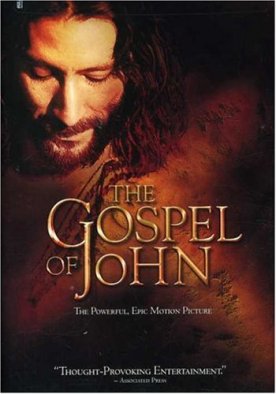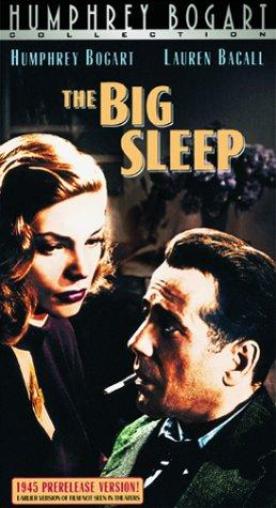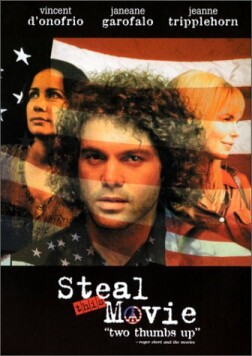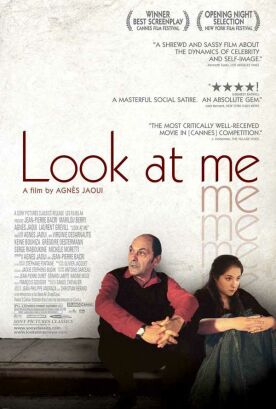Terribly Happy (Frygtelig Lykkelig)
There’s a lot to like in Henrik Ruben Genz’s Terribly Happy (Frygtelig Lykkelig), a Danish film released in its native country in 2008 but now, finally, making its way to the American market. Like a John Ford Western, it provides reminder of how thin is the veneer of law and civilization upon the most primitive impulses of human nature. That autochthonous — meaning sprung from the earth — sort of nature is underlined by Mr Genz’s setting his story in the village of Skarrild in the desolate marshlands of South Jutland on the Danish coast. The image of people, animals, cars, bicycles — all the trappings of everyday life — sinking into or emerging out of the bog is constant throughout the film and a metaphor for the symbiotic relationship, moral as well as practical and economic, between the people and their watery land. It is a relationship that owes nothing to the big city of Copenhagen, from which Robert (Jakob Cedergren) is dispatched at the beginning of the picture to be the town’s sole policeman.
At first he is treated with suspicion as an outsider. The villagers are outwardly polite and even friendly, but they also make it clear that they don’t want him there. When he is befriended by a young woman called Ingerlise (Lene Maria Christensen) who claims that her brute of a husband, J rgen (Kim Bodnia), beats her, it is hinted that she is really just a self-dramatizer who gives herself the bruises she sports in order to cause trouble for J rgen. For his part, J rgen shows Robert the scar where, he says, Ingerlise put a bread knife in him. She won’t file a complaint about J rgen’s treatment of her, so there is nothing Robert can do anyway. But she wants him to take her away from the village, back to Copenhagen from where she, too, originates. The tangled and obscure family relationship between J rgen and Ingerlise can stand for the stifling intimacies with which the whole village has had to learn to deal without outside help.
As the town policeman, Robert is called “Marshal,” which only underlines the connection to the Western, Hollywood’s former stock in trade where once were found similar themes. Like Ford’s great film, The Man Who Shot Liberty Valance, this is a meditation upon the frontier — but it is more explicitly the frontier between civilization and savagery. In both films, an outsider comes to town as a representative of law and civilization and doing things “by the book” only to be told by the villagers that “we handle things ourselves here,” without any need for intervention by law or government. But in Ford’s film, the frontier town is eventually civilized, even though it prefers not to know the dark secret of how this came about. In Mr Genz’s movie, the town’s primitive honor culture appears to be more evenly matched with the forces of law and civilization. By the end, Robert too is saying to outsiders that “we handle things ourselves here.” The villagers tell him, “You’re our man now, Robert.”
As part of their way of handling things themselves, the villagers have a rough and ready way of dealing with trouble-makers, who are invited at gunpoint to take themselves off to the bog and not return except as a corpse. Then they’ll get a nice funeral and a friendly send-off, though the Lutheran parson may mention that the deceased “never quite fit in here.” Robert himself at first seems to fit into this category. He arrives from Copenhagen with a secret, which emerges in the course of the film, about two thirds of the way through, though hints of it are given frequently before its final revelation. We know, for instance, that his posting to God-forsaken Skarrild is a punishment for having done something to embarrass the police when he was on the force in Copenhagen, and that his hope in coming to the town is to redeem himself sufficiently that he is invited to return to the city and civilization.
That he doesn’t want to be in Skarrild, or to be part of the peculiar village life there, that he misses his wife and child, who are estranged from him in some way that seems to be connected with his misbehavior and resulting punishment — all these are pertinent facts, as is the nature of his offense which, when we find it out, creates a curious bond between him and the villagers. The suspense comes from the doubt as to whether Robert will be dragged down, as into a bog, by the moral morass of village life or if he will eventually escape back to civilization. I hope it is not giving away too much if I say that the film could do with a little more of Ford’s optimism and belief in progress, a little less of the flirtation with nihilism that is too typical of Danish, as of other European cinema. But if you don’t mind the darkness of Mr Genz’s vision — and if you do you’ve probably given up going to movies anyway, especially European ones — you may find this a thoroughly enjoyable way to spend a couple of hours.
Discover more from James Bowman
Subscribe to get the latest posts to your email.

